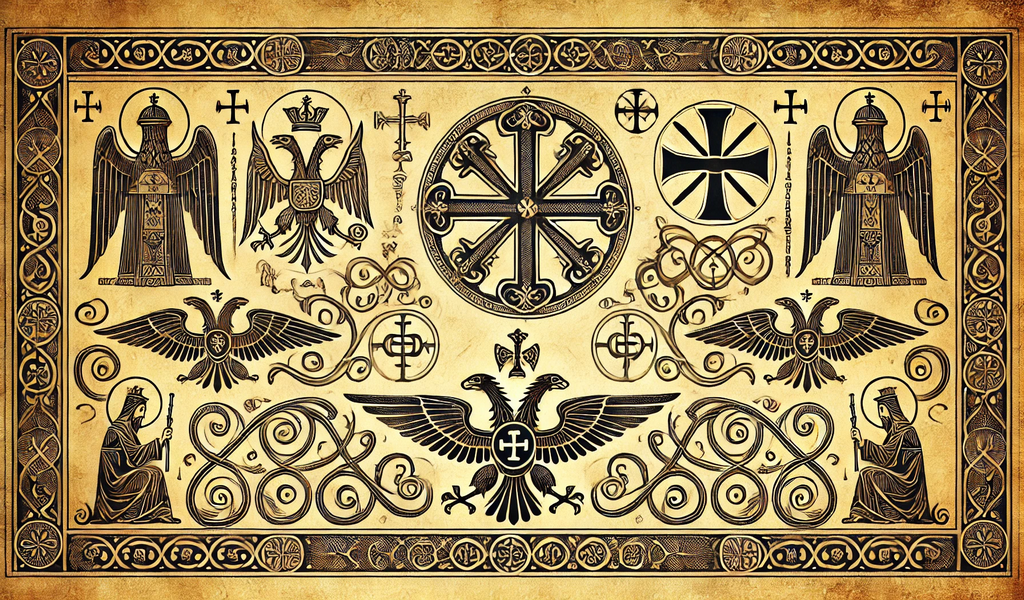➕ Table of Contents
SYNODICAL ENCYCLICAL OF THE CHURCH OF CONSTANTINOPLE
Our Holy Church, believing that the approach and communion between the various Christian Churches is not excluded by the doctrinal differences that exist among them, and that such an approach is greatly desirable, necessary, and beneficial in many ways—both for the well-understood interests of each individual Church and for the entire Christian body—as well as for the preparation and facilitation of a full, God-blessed union in the future, has deemed the present time most suitable for the renewal and joint study of this important issue.
For even though difficulties may arise and obstacles may be interposed due to old prejudices, customs, or claims, which have so often in the past hindered the work of unity, nevertheless, in our opinion, when it comes to a simple initial connection and approach, such difficulties will certainly be less significant.
Moreover, if there is goodwill and proper disposition, these difficulties neither can nor should become an insurmountable and invincible obstacle.
Therefore, we consider this matter both achievable and, if ever, most timely, given the recently established League of Nations. With this in mind, we confidently set forth our thoughts and opinions regarding the manner in which we understand and consider this approach and connection possible. We eagerly seek and expect the judgment and views of our fellow brethren in the East as well as of the esteemed Christian Churches in the West and throughout the world.
We therefore believe that two key factors are essential for achieving such a desired and beneficial rapprochement, ensuring its success and making it manifest.
First and foremost, we consider the removal and elimination of all mutual distrust and dissatisfaction among the various Churches to be necessary and indispensable. These difficulties are often provoked by the tendency observed in certain Churches to attract and proselytize the followers of other denominations.
For no one is unaware of what continues to happen today, unfortunately in many places, where the internal peace of the Churches is disrupted, particularly in the East, leading to new sufferings and trials imposed upon them even by their own brethren.
And instead of yielding any significant results, this tendency of some to proselytize and draw followers from other Christian denominations only fosters hostility and sharpens divisions, creating great resentment instead.
Thus, with sincerity and trust first and foremost being restored among the Churches, we consider it equally essential that love be rekindled and strengthened among them. They must no longer regard one another as strangers or outsiders, but rather as kindred and familiar in Christ, as "fellow heirs and members of the same body, and partakers of the promise of God in Christ Jesus" (Ephesians 3:6).
For if the various Churches are inspired by love and prioritize it in their judgments about one another and in their mutual relations, they will be able not to extend and deepen their division, but rather to shorten and diminish it as much as possible.
Through the cultivation of a consistent, fraternal concern for the condition, stability, and well-being of other Churches; through a commitment to attentively follow developments within them and to gain a more precise understanding of their state; and through a willingness to offer mutual assistance and support whenever needed, many great benefits will be accomplished to the glory of God and for the welfare both of themselves and of the entire Christian body.
This friendship and benevolent disposition toward one another may be expressed and affirmed more specifically, in our opinion, in the following ways:
a) Through the adoption of a unified calendar, enabling the simultaneous celebration of major Christian feasts by all Churches.
b) Through the exchange of fraternal letters on the great feasts of the ecclesiastical year, as is customary, and on other extraordinary occasions.
c) Through closer relations between the representatives of the various Churches in different regions.
d) Through the communication between Theological Schools and theological scholars, as well as the exchange of theological and ecclesiastical publications issued by each Church.
e) Through the organization of Pan-Christian conferences to examine matters of common interest to all Churches.
f) Through the dispassionate and historically grounded study of doctrinal differences, both in academic discourse and in theological writings.
g) Through the mutual respect of the traditions and customs upheld within each Church.
h) Through the mutual provision of places of worship and cemeteries for the funerals and burials of the deceased members of other confessions who pass away in foreign lands.
i) Through the willing and reciprocal support of the Churches in works of religious strengthening, philanthropy, and similar charitable endeavors.
The Locum Tenens of the Ecumenical Patriarchal Throne
Metropolitan Dorotheos of Prussa
1920

 DE
DE  RU
RU  UK
UK 